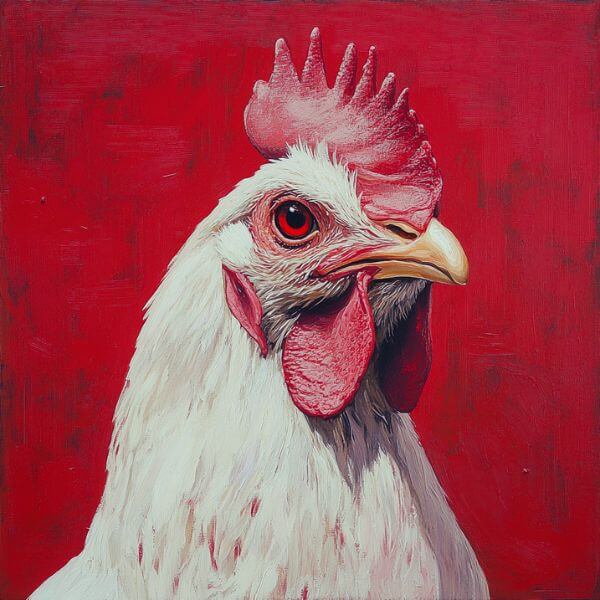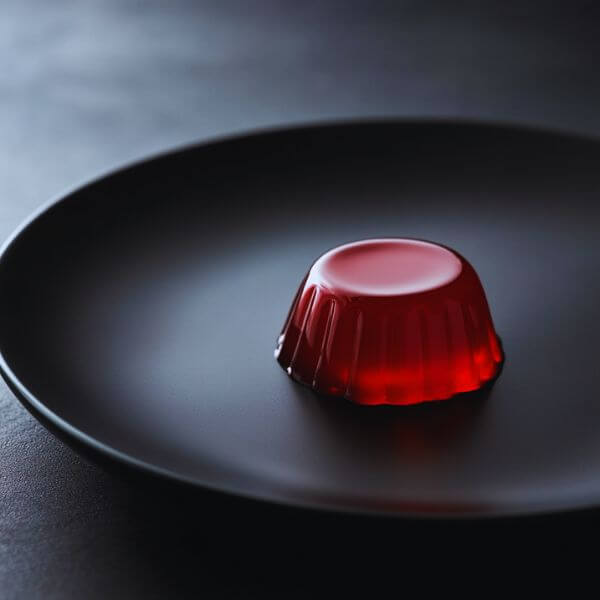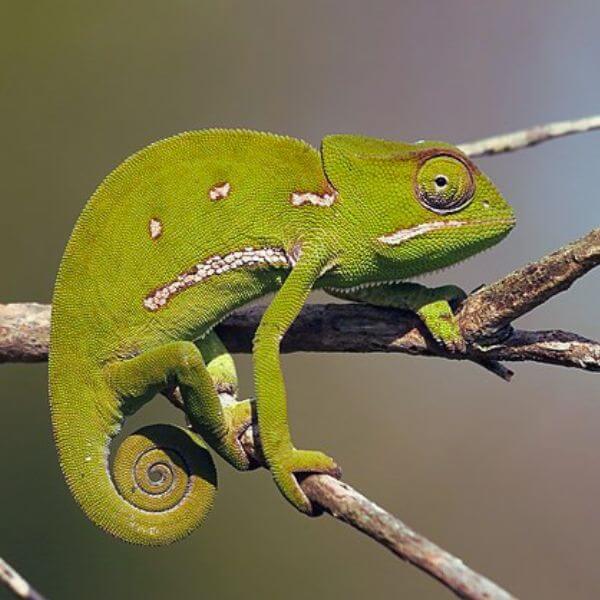No, chameleons should not eat raw chicken meat. It might seem like a good idea because chicken is protein, right?
But here’s the deal – chameleons aren’t built to handle chicken or any other kind of meat.
Let’s break it down:
- Chameleon digestive system: It’s designed for insects, not meat.
- Protein requirements: They need protein, but from insect sources.
- Natural instincts: Chameleons don’t recognize chicken as food.
Think of it this way: asking if a chameleon can eat chicken is like asking if you can photosynthesize. It’s just not in their nature!
Risks of Feeding Chicken to Chameleons
Okay, so we’ve established that chicken is a no-go for chameleons.
But what if your curious little reptile somehow got a piece of chicken?
- Digestive troubles: Their tiny tummies can’t handle meat.
- Nutritional imbalance: Chicken doesn’t provide the right mix of nutrients.
- Potential choking hazard: Chameleons aren’t equipped to eat large chunks of food.
- Bacterial risks: Raw chicken can harbor nasty bacteria.
It’s like trying to fuel a car with orange juice – it’s just not going to end well!
Safe and Appropriate Foods for Chameleons
Now that we know chicken’s off the menu, let’s talk about what chameleons can actually eat.
Remember, we’re aiming for a diet that mimics what they’d munch on in the wild.
The best insects for chameleons include:
- Crickets (the chameleon equivalent of pizza)
- Roaches (sounds gross, but chameleons love ’em)
- Worms (like mealworms or silkworms)
- Flies (the annoying bugs we swat are chameleon delicacies)
Some chameleons enjoy a bit of greenery too. Here’s a quick list of veggie options:
- Collard greens
- Dandelion leaves
- Mustard greens
And if you’re feeling a bit lazy (no judgment here), there are commercial chameleon food products available. Just remember, these should supplement, not replace, a varied insect diet.
Proper Food Preparation for Chameleons
Now, how do you serve it up to your scaly friend? Here are some tips:
- Size matters: Food should be no larger than the space between your chameleon’s eyes.
- Gut-loading: Feed the insects nutritious foods before giving them to your chameleon.
- Dusting: Sprinkle calcium powder on the insects for added nutrition.
- Frequency: Adult chameleons usually eat every other day, while youngsters need daily meals.
Remember, preparing food for a chameleon is more like being a nutritionist than a chef!
Ensuring a Balanced Diet for Your Chameleon
Just like us humans need a balanced diet, so do chameleons. Here’s what you need to know:
- Variety is key: Mix up the types of insects you offer.
- Supplements: Use calcium and vitamin D3 supplements as directed by a vet.
- Hydration: Mist the enclosure for drinking water.
Think of it as creating a tiny, bug-filled food pyramid for your chameleon!
FAQs
How often should I feed my chameleon?
Adult chameleons typically eat every other day, while juveniles need daily meals.
Can chameleons eat fruits?
Most chameleons don’t eat fruit in the wild. Stick to insects and occasional leafy greens.
Is it necessary to supplement a chameleon’s diet?
Yes, calcium and vitamin D3 supplements are usually necessary for captive chameleons.
What size of food is appropriate for chameleons?
Food items should be no larger than the space between your chameleon’s eyes.
Can chameleons drink water from a bowl?
Chameleons generally don’t recognize standing water. They prefer to drink water droplets from leaves or misting.
Conclusion
Well, we’ve journeyed through the world of chameleon cuisine, and one thing’s for sure – chicken isn’t on the menu!
Remember, these color-changing cuties are insectivores through and through.
Feeding them a varied, insect-based diet is key to keeping them healthy and happy.
So, the next time someone asks you, “Can chameleons eat chicken?” you can confidently say, “Nope, but they sure do love their bugs!”
Keep it crawly, keep it small, and your chameleon will be living its best life. Happy feeding!






Leave a Reply